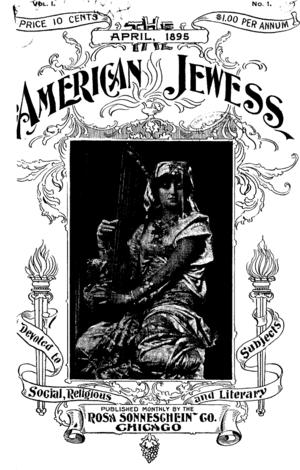Passover, the Jewish holiday that commemorates the liberation of the Children of Israel from Egypt, marks a birthing moment for the Jewish people. As they pass through the Sea of Reeds, they are transformed from a band of slaves into a free nation.
On Passover, Jews are instructed not only to convey the story of the Exodus to the next generation, but to tell the story as if we ourselves experienced it. As is written in Exodus 13:8: "And you shall explain to your child on that day, 'It is because of what the Lord did for me when I went free from Egypt." That sense of empathy with our ancestors—the enslaved Children of Israel—and the commandment that we treat strangers with respect and kindness because we were strangers in the Land of Egypt (Exodus 22:30)—has led Jews throughout history to work for the liberation of other oppressed people. In America, Jews have exercised the freedom we experience by taking leadership roles in movements—such as the labor movement, civil rights movement, and the Feminist Movement—working for human rights.
One of the ways that we make the miracle of the Exodus continually relevant is to consider the meaning of liberation and freedom in our own lives, as Jews, as Americans, as women and men. The document featured in this Go & Learn guide—Rosa Sonneschein's editorial in the April 1897 issue of The American Jewess—does just that. Sonneschein explores the meaning of Passover in relation to the American celebration of freedom—the Fourth of July. She asks what it means for Jews in America to celebrate Passover, and in what ways we might think of ourselves as spiritually enslaved despite having religious and national freedom.
Rosa Sonneschein, who came to the United States from Hungary in the 1860s, created The American Jewess to address the issues of identity that American Jewish women faced at the end of the 19th century. Published between April 1895 and August 1899, The American Jewess was the first English-language publication directed to American Jewish women. It covered an evocative range of topics, from demands for synagogue membership for women, to Zionism, to health and fashion tips, to the propriety of women riding bicycles. The publication's sense of possibility was captured in its title. Though strange and archaic to contemporary ears, the phrase "American Jewess," in the 1890s, described a new type of Jewish woman, one who could fully embrace the possibilities of both the religious and national aspects of her identity. At its height, the magazine claimed a circulation of 31,000.
Sonneschein was the first American Jewish woman to offer a strong and consistent critique of gender inequities in worship and synagogue leadership. She demanded that Jewish women "thirsting for the word of God" be allowed to "drink directly from the fountain of Religion." Her written contributions to The American Jewess are also noteworthy for their relatively early advocacy of Zionism by an American Jew.
Sonneschein oversaw and edited volumes 1-7 of The American Jewess. In the summer of 1898, deflected by setbacks in both business and health, she yielded control of the publication to an unidentified group of publishers. Although Sonneschein continued to appear frequently as a correspondent, the journal suffered from the loss of her sharp editorial perspective and vision. The last issue appeared in August 1899.
Rosa Sonneschein took to heart one of the central messages of Passover—the importance of telling the story of the Jewish people. She understood that the story was incomplete if it did not include women's experiences, and so she founded The American Jewess to preserve the progress of American Jewish women in writing. As she observed in the first issue of The American Jewess, "Not what has happened, but what is recorded makes history."



